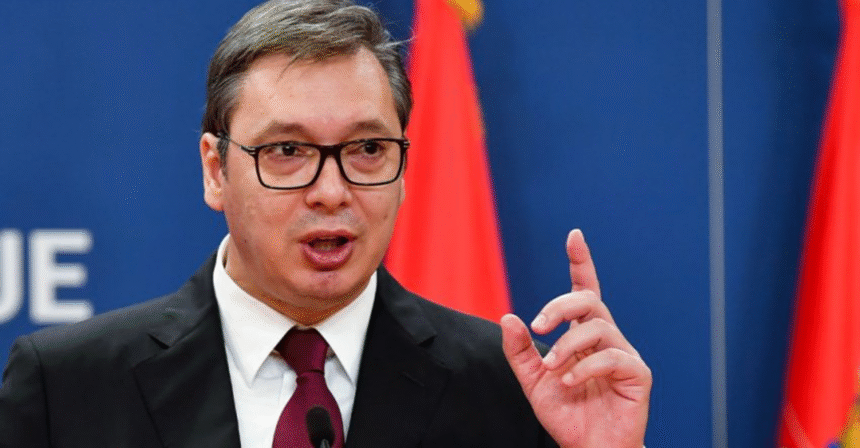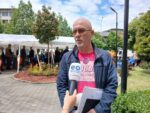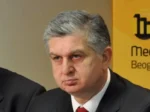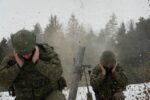The German daily Frankfurter Allgemeine Zeitung has raised a critical question: Why is Serbian President Aleksandar Vučić, known for calling frequent snap elections, now refusing to do so? In a detailed analysis, journalist Michael Martens explores how mounting pressure from student-led protests and weakening internal support may be shaking the foundations of Vučić’s long-standing dominance in Serbian politics.
Students Turn Up the Heat
The protests, initiated by students who originally aimed to remain politically neutral, have now evolved into a full-fledged demand for the dissolution of parliament and immediate elections. Protesters intend to form a civic list of experts and professors, urging opposition parties not to run themselves, but to support the student platform instead.
Vučić Avoids the Ballot Box — Why Now?
Historically, Vučić has called elections whenever his party, the Serbian Progressive Party (SNS), held a strong lead. But this time, the president appears to be avoiding the polls.
“Vučić may have seen internal polling showing strong support for the student movement, which could undermine his party’s dominance,” Martens writes.
Even high-ranking officials close to Vučić, such as former Prime Minister Ana Brnabić and current PM Miloš Vučević, are reportedly against holding elections now — signaling strategic hesitation within the regime itself.
Crackdown on Institutions: Judiciary and Academia in the Crosshairs
The article also highlights government pressure on Serbia’s remaining independent institutions, particularly the judiciary and universities:
- Opposition activists in Novi Sad have been transferred from custody to house arrest after controversial detentions.
- Vučić reportedly reacted furiously to their release and threatened judges and prosecutors, possibly signaling a forthcoming purge of uncooperative judicial officials.
- The university system, long considered a bastion of independent thought, is now under assault. The government is allegedly preparing a new law on higher education that would allow it to appoint deans and reshape academic governance.
- State funds are being redirected to private universities more aligned with government interests, weakening public institutions where dissent has traditionally thrived.
EU Influence Fading
While EU foreign affairs chief Kaja Kallas warned during her recent visit that academic autonomy must be respected, the article notes that such messages carry little weight in Serbian political circles, where belief in a future EU membership has greatly diminished.
“At least on this issue, both the government and the opposition share skepticism,” concludes Martens.







